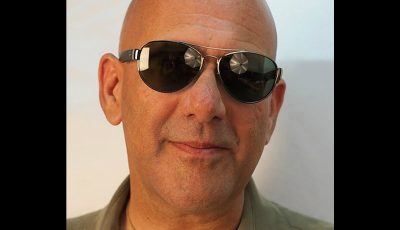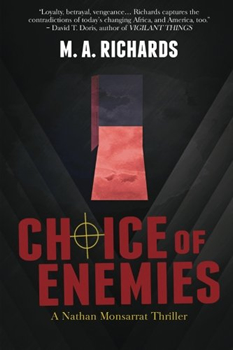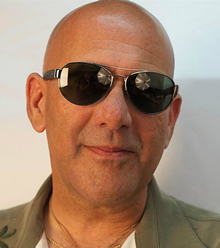

Debut Spotlight: M.A. Richards
A Conversation With E.A. Aymar and M.A. Richards
 By E.A. Aymar
By E.A. Aymar
CHOICE OF ENEMIES is one of those rare thrillers that keeps the reader invested even when the bullets aren’t flying. Nathan Monsarrat, the hero of this debut novel by M.A. Richards, is a retired CIA agent who’s lured back into the fold, and uses his considerable expertise to ruthlessly outwit his enemies. “Considerable expertise” is also an apt expression to describe Richards, given that this book is informed by the twenty-plus years he spent working for the Department of the State in Baghdad, Jerusalem, Lagos, Moscow, Seoul, Tel Aviv, and Washington, D.C. The thriller is filled with small but poignant descriptions of distant locales that never run the risk of slowing down the plot, and Monsarrat provides a fascinatingly complex perspective through his adventures.
After finishing CHOICE OF ENEMIES, I was eager to ask Richards about his book and his approach to his craft:
How long did it take for you to complete CHOICE OF ENEMIES? And was that the same length of time for the second book in the series?
You remember Truckin’ by the Grateful Dead? “What a long, strange trip it’s been?” Those seven words pretty well describe the journey of CHOICE OF ENEMIES, conceived in a bar in Amherst while drinking Guinness Stout with friends from my MFA program at the University of Massachusetts in 1980, thirty-six years before the actual publication of the novel. Betwixt and between, shit happened, like dropping out of my MFA program. I had nothing to write; I was bereft of experiences; I had never lived beyond the comfort zone of New England. So I bought a cheap ticket to Europe and spent the next few months backpacking through the Continent. When I returned home, I started to work on the novel, but I was offered a job in Asia. I stayed until the end of the 1980s, only to join the Department of State and go abroad again. Fast forward to June 2013: rich with experiences but a pauper in time, I retired and began to finally write the novel. The story, of course, had evolved since it tickled me in the bar in Amherst more than three decades prior. I finished the first draft in ten weeks, put it aside for a month, and then began the rewriting process. It took six weeks to smooth the rough edges, so from start to finish, the writing/rewriting process lasted about five months. And then began the hunt to find the right agent.
When I began A THOUSAND ENEMIES, the second novel in the Nathan Monsarrat international espionage series, the frenetic energy that drove me to write the first book in such a short period of time had dissipated, so I no longer felt possessed and was able to go forward at a saner pace. Also, A THOUSAND ENEMIES weighed in at 160,000 words, twice as long as the first novel, so the creative process took longer. In total, sixteen months passed from the start of the drafting to the finish of the rewriting of A THOUSAND ENEMIES. The book should launch this year.
It’s nearly inescapable to avoid politics when it comes to writing, and issues like oil, torture, the west’s regard to Africa, and the CIA are omnipresent throughout CHOICE OF ENEMIES. How do you approach politics when you write about them? Do you feel obligated to take a side, or do you prefer the Chekhov approach of objectivity?
You are right – it’s impossible to prevent politics from infecting a spy novel, but it is also inadvisable to turn the novel into a political treatise. In both my novels, I’ve tried hard to remain an objective author, although my characters shoot the moon when it comes to their personal beliefs. My concerns focus on the humanity (or, in some cases, the inhumanity) of the characters and their situations. I’m more interested in exploring the morality and base desires of loyalty, betrayal, and retribution than I am in discussing the correctness of Republicans versus Democrats or communism versus capitalism or enlightenment versus salafism. It’s the churning of the emotions and actions that grow out of the political arena affecting the characters in my novels that fascinates me. Even within the genre of the spy novel, a serious author has a responsibility to address the larger issues of how a life is lived – without that effort, you’ve dropped into the realm of the potboiler and pulp fiction. The best writers in the field, John LeCarre and Graham Greene, Martin Cruz Smith and Robert Stone, prove it’s possible to address existential issues in a thriller.
What do you personally like and dislike about Nathan Monsarrat?
Nathan is true to himself, which is why he’s such an engaging character. When I began crafting him (I can’t shake the thought that creating a protagonist is akin to Dr. Frankenstein giving the spark of life to the Golem), I had the image of an American James Bond – tall, muscular, handsome, and intelligent, offset with a retributive streak. After his return from Port Harcourt in CHOICE OF ENEMIES, Nathan changed, as if the devils of his personality had been exorcised by the events in the hotel…he became his own character. I no longer fed him lines and stage directions; he took charge of his own fate. He’s surprised me in some of his actions and thoughts, but I respect his decisions, although sometimes I disagree with his choices. In a way, it’s a bit like raising a son in time-lapse: before you know it, your protagonist is in charge of his own life.
Your descriptions of exotic locations are so detailed (like the border crossing late in the novel). Did you visit all the places described?
I’ve lived or spent time in almost all of the locales in both novels, although the fictional college town in the Berkshires is modeled upon Amherst, Massachusetts. Knowing the DNA of the locales in the novels allows me a fidelity in my writing that can’t be gained from researching books, magazines, or the web. Some of the places I visited as a tourist, which offered one perspective; the majority of locations, though, I saw through the filter of a resident, which provided a much more granular perspective. For example, much of the action in A THOUSAND ENEMIES takes place in al-Basra in Iraq, where I was stationed from 2007-2008. Although I don’t spend a great amount of time describing the environment, having spent 366 days in-country allowed me to impart the emotional aspects of the twenty-four/seven danger of operating on unfriendly territory. This was in the midst of a nasty insurgency where the rule of law was a barroom joke and one misstep could end your life; or, perhaps worse, result in becoming the guest of a Sunni and/or Shi’a faction, for whom an American captive was the ultimate maraschino cherry.
I was impressed with the amount of research you must have done. Was much of that knowledge obtained in your employment with the State Department, or did this book involve vast amounts of research?
I often did not agree with our government’s policies when I worked as a Cultural Attaché in the Department of State, but the experiences and knowledge I gained provided so much insight and so many experiences…more than I imagined possible when I left my MFA program, searching for adventures. I use my three decades of global wanderings as the basis of my writing, but I enjoy researching (I am a library junkie) the sometimes large gaps I encounter in my knowledge and memory. I fight the dangers of pedantry, though, through vicious rewriting and editing.
Can you tell us a little bit about your publishing history?
At the conclusion of the writing/rewriting process for CHOICE OF ENEMIES, I sent out my first tranche of six query letters to agents and was fortunate that Dean Krystek of Word Link Literary asked for the full manuscript a few weeks later. Another few weeks passed until I received the happy offer. It took a while to place the novel – one editor at a large New York publishing house wanted to take it, but felt the African locales would not interest an American audience. Twelve months after signing with Dean, I received a two book contract with my current publisher for CHOICE OF ENEMIES and A THOUSAND ENEMIES.
How often do you write? Daily, and if so, for how long?
I belong to the framework school of writing. Monday through Friday, I’m at my desk, reading the news and emails no later than 0700 hours. At the dot of 0800 hours, I start writing. I usually work until noon, take thirty minutes for lunch, and return to the desk for another two hours of work. I’m done for the day at that point, although I carry a small notepad and a pen with me, in case a thought pops into my head; once, I almost broke my leg at the gym jumping off the treadmill to get to the pen and paper before the thought vanished. On the weekends, I leave the laptop closed and explore the back roads of Florida on a 1731cc Victory Boardwalk. Oh, yes, did I mention the liters of coffee I mainline while writing?
What other forms of art do you enjoy? Any shows you’re really into, movie, artists?
I shoot landscapes with an old F2 Nikon, though it’s hard now to find Kodachrome, so I suppose I should join the 21st century and start using a digital camera. You may have seen some of my photographs from Asia, the Middle East, and eastern Europe in magazines. Since returning home in 2013, I’ve binge watched shows on Netflix, making up for time lost. Breaking Bad and Sons of Anarchy devoured many hours, as did NCIS, Bluebloods, and Hawaii 5-0. I worked at Pacific Command outside Honolulu after coming back from Iraq and really enjoyed seeing the sites again on the show.
Which writers influenced you?
Wow, that’s the lottery question…how many words can I use for this answer? I started reading the Classics, some in the original language, others in translation, before jumping to Stuart and Tudor drama. Somehow, that fascination morphed into American writers of the Lost Generation. I may have burnt out after reading Dos Passos; the next thing I knew, I was devouring Dashiell Hammett, Raymond Chandler, and James M. Cain. Slipping from hardboiled private eyes to bitter and disillusioned spies was a smooth segue. I graduated from Eric Ambler to Ian Fleming, Graham Greene (all hail the master!), and John LeCarre (no one has ever written a better stand-alone espionage novel than The Spy Who Came In From the Cold). On the American side, I very much admire Martin Cruz Smith and Daniel Silva, but no one more than Robert Stone. Have you read Damascus Gate? An amazing novel that captures the Middle East better than any novel since The Little Drummer Girl.
*****
M.A. Richards received his Bachelor of Arts degree in Theater Studies from Connecticut College and his Master of Arts degree in English from the University of Massachusetts at Amherst. During a career as a Cultural Attaché in the Department of State that spanned more than two decades, he served in Baghdad, Jerusalem, Lagos, Moscow, Seoul, Tel Aviv, and Washington, D.C. He also served at U.S. Pacific Command in Honolulu as the Special Advisor to the Commander. He speaks Arabic, Hebrew, Korean, and Russian. Richards divides his time between Palm Beach and Tel Aviv, where he indulges his passions for motorcycles, photography, and archaeology. Visit www.marichardsbooks.com to learn more about M. A. Richards, Choice of Enemies, and A Thousand Enemies. Available online and in fine purveyors of books.
To learn more about M.A. Richards, please visit his website.
- Debut Spotlight: John Copenhaver - January 31, 2018
- Debut Spotlight: The Red Line by Walt Gragg - March 31, 2017
- Debut Spotlight: M.A. Richards - October 31, 2016

